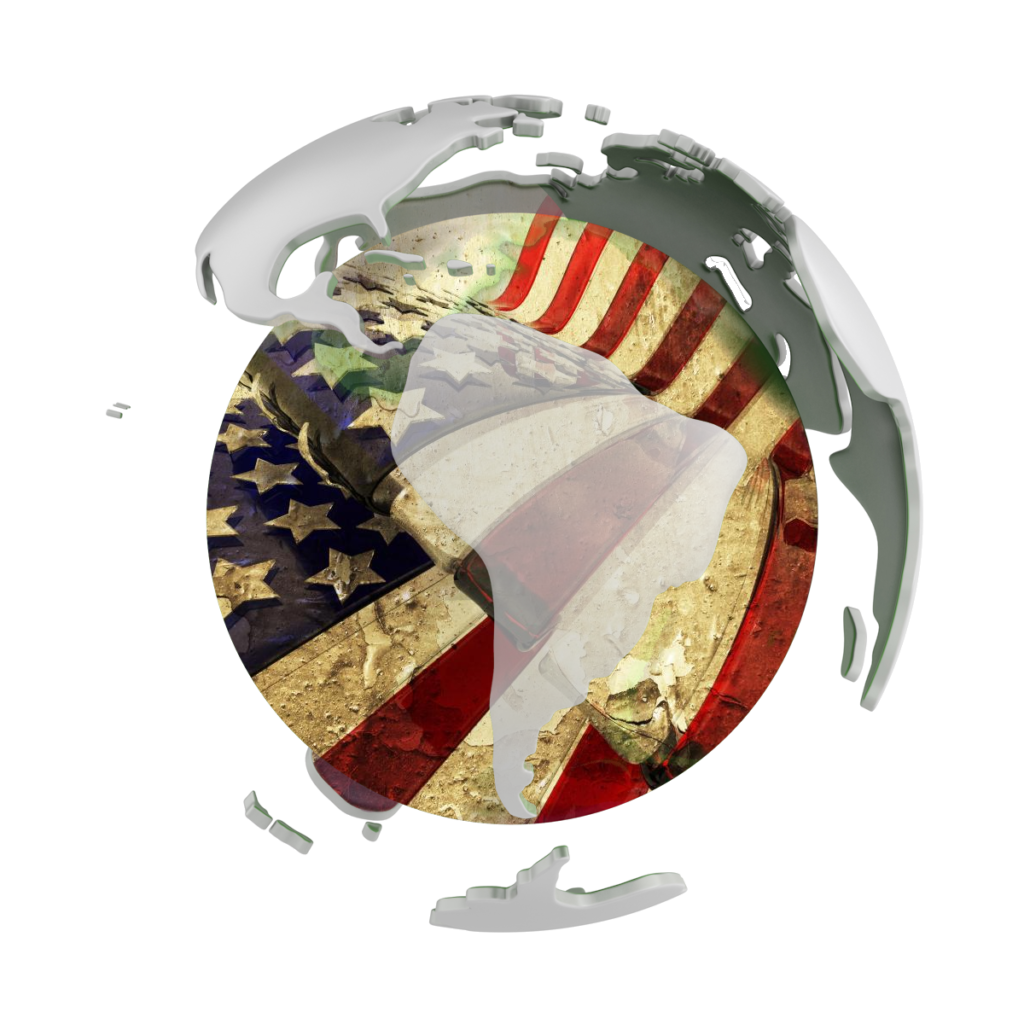When I began writing articles for this blog back in 2006, one of the earliest topics I addressed was the need for global leadership. At that time, I wrote, “Genuine global leadership will only be achieved when enlightened world leaders create and promulgate a set of governing principles that provide guidance for a world with an increasing and significant amount of instability. It must be a sweeping vision that deals with issues from super-empowered individuals to non-state actors to a rising hyperpower.”[1] Through the years, I have continued to stress the need for global leadership regardless of whether Democrat or Republican administrations were in power.
In a recent op-ed piece, Jamie Dimon, Chairman and CEO of JPMorgan Chase & Co., added his voice to pleas from others for more effective global leadership. My earlier call for global leadership was made after the end of the Cold War. It was a period of growing globalization when the world was allied against terrorism and China and Russia looked to be integrating fully into the global economy. Since then, the world has taken a turn down a darker road. Dimon explains, “Russia’s invasion of Ukraine punctured many assumptions about the future of the world and thus was a pivotal moment in history. America and the West can no longer maintain a false sense of security based on the illusion that dictatorships and oppressive nations won’t use their economic and military powers to advance their aims — particularly against what they perceive as weak, incompetent and disorganized Western democracies.”[2]
What Constitutes Global Leadership?
Too often people hope a single, charismatic leader will emerge who can, by the sheer power of their will, direct the world to a better place. Such leaders are generally more authoritarian and dangerous than they are helpful. They seldom leave the world better than they found it. Authoritarian leaders see themselves as indispensable; and, as a result, they often expend more energy trying to remain in power than actually leading. Rather than stressing individual leadership, the World Economic Forum (WEF) suggests “systems leadership” is a better model. “Systems leadership is about cultivating a shared vision for change — working together with all stakeholders of global society. It’s about empowering widespread innovation and action based on mutual accountability and collaboration.”[3] As Lee Howell, the former Managing Director of the WEF, wrote, “The self-important don’t always win. Selfless leadership can create systemic change that spreads happiness — instead of hoarding it.”[4]
Frankly, Dimon is not so much worried about happiness as he is about security. He explains, “In a troubled world, we are reminded that national security is and always will be paramount, even if it seems to recede in tranquil times. It should also lay to rest the idea that America can stand alone. U.S. leaders must always put America first, but global peace and order is a vital American interest. Only America has the full capability to lead and coalesce the Western world, though we must do so respectfully and in partnership with our allies.” In other words, American global leadership must be systems leadership. Here’s the rub: The public is less trusting of systems of governance than they have been in the past. A dozen years ago, Colin Bradford, a Nonresident Senior Fellow at the Brookings Institution, wrote, “There is a deep-seated political crisis of trust in national and global leadership. Polling evidence suggests that trust in political leaders in G20 countries is at historically low levels. Leaders have failed to think through in advance what matters most to publics, and to articulate a vision of concerted action by the G20 that corresponds to these vital hopes and concerns.”[5] That crisis of trust has only deepened over the ensuing years.
America needs to recapture the spirit, generosity, and leadership it displayed following the Second World War. Chris Patten, Chancellor of Oxford University and a former chairman of the UK Conservative Party, explains, “There are few examples in history of a victorious nation behaving with the visionary generosity of the United States, which was at the heart of the institutional, political, economic and cultural efforts to create a better and more stable world.”[6] He adds, “America became even greater by helping others to be greater. You could sneer, as many Europeans did, at what was often seen as American naivety. … Sometimes the naivety came with a cost. But the comprehension (initially in the old democracies) that almost every serious problem that nation-states faced could only be dealt with through cooperation with others was generally accepted and provided the template for international action.”
Asserting Global Leadership
Seeing a lack of leadership in the West, Patten asks, “What went wrong?” His answer: “Ideology ran away with common sense. … Globalization — making goods in the places that could make them cheaper and better — began to be seen as enemy rather than friend, a process aggravated by bad political leadership in some Western democracies especially America, and by the aggressively unfair policies pursued by China.” With all that troubles today’s world, Patten, like Dimon, believes global leadership is desperately required. He explains, “Despair is not much use. There are things we can and must do. They require strong leadership with many policies that some voters will thoroughly dislike — phasing out dirty energy, taxing carbon, taking new approaches to the management of land, changing the global diet, investing more in carbon capture and green energy.”
Some of Patten’s solutions won’t gain much traction in America. On the other hand, Dimon understands that America cannot force its will on other Western democracies. Global leadership is gained through the power of example. Leadership starts at home and then spreads globally. And global leadership, Dimon insists, is essential. “Without cohesiveness and unity with our allies,” he writes, “autocratic forces will divide and conquer the bickering West. America needs to lead with its strengths — not only military but also economic, diplomatic and moral.” He suggests that America should pursue the following five actions:
• Rededicate ourselves to the qualities and principles that made America great. According to Dimon, “These principles are life, liberty, the pursuit of happiness and the idea that all people are created equal. Democracy and human freedom are inseparable from freedom of speech, freedom of religion and free enterprise. It would help to educate all Americans about the sacrifice of those who came before us for democracy at home and abroad. We need to acknowledge the critical role that government plays — and we need government to be more competent and accountable.”
• Develop a Marshall Plan for global energy and food security. Dimon writes, “This will be critical both in keeping the Western alliances together and minimizing the global suffering caused by starvation. Global energy and food supply chains are precarious by their nature. And it should be self-evident that energy security and preventing climate change aren’t contradictory: Secure and reliable oil and gas production is compatible with reducing CO2 over the long run, and is far better than burning more coal. It should also be self-evident that global food and energy security relies on realistic trade policy and American military strength.”
• Increase military spending, along with our allies, as much as necessary to protect the world. “Not only is America a bastion of freedom,” Dimon writes, “it is still the arsenal of democracy, and economic sanctions are no substitute for an effective military.”
• Recover our economic dynamism. Both political parties (as well as the rest of world), desire a strong global economy. Dimon writes, “A strong economy is the foundation for American power, and we haven’t focused enough on economic growth. … Economic growth will repair the fraying of the American dream, particularly if we share the wealth by improving education and wages for lower-paid citizens. … We must also fix the immigration policies that are tearing us apart, dramatically reducing illegal immigration and dramatically increasing legal immigration. Global trade will necessarily be restructured so that we don’t rely on potential adversaries for critical goods and services.”
• Deal with China thoughtfully and without fear. According to Dimon, “America still has an enormously strong hand — plenty of food, water and energy; peaceful neighbors; and what is still the most prosperous and dynamic economy the world has ever seen. We can have faith that our system will maintain the economic dynamism we need.” China is a different story. Dimon admits China has done a great job creating a world-class economy and bringing millions of people out of poverty. “Yet,” he explains, “any fair assessment must recognize its challenges — not enough food, water and energy; a very complex geopolitical situation with tough neighbors; a lack of freedom that creates economic rigidity and malinvestment.”
Concluding Thoughts
If American leadership is going to guide the future, it must be systems leadership not selfish leadership. Systems leadership will require a bipartisan effort — something that looks difficult to achieve at the moment. Patten notes, however, that leaders walk the talk. He concludes, “It is easier to say what should be done rather than to do it — or even to get elected promising to do it. Yet every generation faces a steep climb. The ascent must have seemed hazardous to FDR, to Churchill, to Harry Truman and to others in the 1940s. We know from this experience the truth of the old Spanish proverb, which the early 20th century poet Antonio Machado made famous in a great poem: ‘Caminante, no hay camino, se hace camino al andar’. ‘Traveler, there is no way. The way is made by walking’. That is what leaders do. They walk. They walk ahead of us, sometimes into the dangerous unknown. They walk and they make the road for the rest of us to tread following in their footsteps.”
Footnotes
[1] Stephen DeAngelis, “The Need for Global Leadership,” Enterra Insights, 4 August 2006.
[2] Jamie Dimon, “The West Needs America’s Leadership,” The Wall Street Journal, 3 January 2023.
[3] GlobalPeople staff, “What is global leadership?” University of Warwick, 6 June 2020.
[4] Lee Howell, “Why the world needs systems leadership, not selfish leadership,” World Economic Forum, 2 November 2019.
[5] Colin Bradford, “G20 Summitry: The Need for Global Political Leadership,” Center for International Governance Innovation, 18 October 2011.
[6] Chris Patten, “The world needs political leadership from its democracies,” The Strategist, 9 November 2019.





